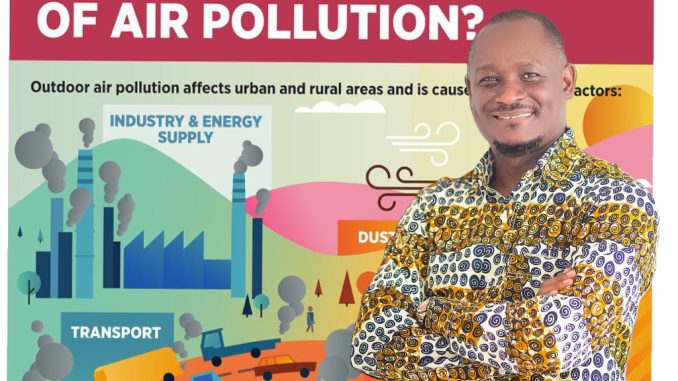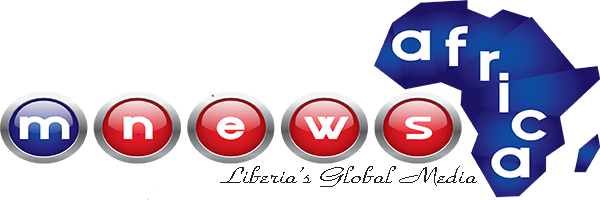
Monrovia, Liberia – The Clean Air for Liberia project has been selected as one of 12 new EPIC Air Quality Fund recipients, an initiative led by the Energy Policy Institute at the University of Chicago (EPIC) to expand air quality monitoring and data access in highly polluted regions. This award is part of a more significant effort to improve air quality infrastructure in 16 countries, supported by funding from Open Philanthropy, Alpha Epsilon, and other donors.
Liberia lacks comprehensive air quality data, making this project a milestone in environmental health monitoring. The ‘Clean Air for Liberia’ initiative will establish the country’s first long-term PM2.5 monitoring network, deploying 20 low-cost air quality monitors and one reference-grade monitor. This effort is a collaborative initiative led by Sheck Sherif, Project Lead, alongside the United Methodist University, the Kigali Collaborative Research Centre, AfriqAir, and Afri-SET. The project aims to generate critical data to inform national policy, increase public awareness, and advocate for Liberia’s first national air quality standards.
Dr. Allison Felix Hughes, a Senior Lecturer in Environmental Physics at the University of Ghana, provides expert guidance to the project. With over 15 years of experience in air pollution characterization, renewable energy technologies, and environmental modeling, Dr. Hughes’ contributions are instrumental in ensuring the project meets global scientific standards while addressing Liberia’s unique air quality challenges.
“The Clean Air for Liberia project represents a transformative step toward tackling the country’s air pollution issues. By deploying advanced low-cost sensors and openly sharing air quality data, we aim to empower policymakers, raise public awareness, and advocate for national air quality standards,” said Sheck Sherif, Project Lead. “This project is not just about monitoring – it’s about fostering systemic change for a healthier and cleaner Liberia.”
Dr. Hughes emphasized the significance of reliable data in improving air quality management, stating, “Liberia has an opportunity to build a sustainable air quality monitoring network that informs policies and safeguards public health. This project is a crucial step toward achieving that goal.”
“Opacity and lack of data are pollution’s best friend. Time and time again, history demonstrates that reliable air quality data is an essential first building block for cleaner air and better health,” says Michael Greenstone, the Milton Friedman Distinguished Service Professor in Economics and Director of EPIC. “Citizens need the data to protect themselves against the risks of air pollution. Policymakers need data to develop and enforce air quality standards to measure progress. These organizations have the power to launch this change.”
EPIC Air Quality Fund awardees represent some of the world’s best chances to close air quality data gaps and advance clean air policy in places where citizens’ lives are being seriously impacted by air pollution yet where there have been scarce resources deployed to address the issue,” says Christa Hasenkopf, director of EPIC’s.
The Clean Air for Liberia project will run for 18 months, during which the data collected will be openly accessible to researchers, decision-makers, and the public. Through partnerships with the non-profit OpenAQ, the initiative will ensure transparency and maximize the impact of air quality data in Liberia.
This award underscores the growing recognition of air pollution as a leading public health threat and the urgent need for localized, data-driven solutions. As Liberia takes this critical step in air quality monitoring, this initiative is expected to set the foundation for long-term environmental and public health improvements across the nation.
Awardee: United Methodist University, led by Sheck Sherif; Kigali Collaborative Research Centre, led by Prof. Timothy Brown
Team Members: Dr. Allison Hughes, Prof. Timothy Brown, Victoria Owusu Tawiah, Samuel Koenig, William Duodu, Mfuranziza Sekata Aimelyse Moss, and Sheck Sherif.
***
About EPIC Clean Air Program
The EPIC Clean Air Program is working to bring actionable information about the quality of the air we breathe and its impact on our health to every corner of the globe to motivate action and lay guideposts for efficient air pollution policies. This work includes an EPIC Air Quality Fund to bring high-quality and high-frequency air pollution monitoring and data access to the places of the world where it is needed most; the Air Quality Life Index (AQLI), which uses air pollution data to translate the impact of pollution on a person’s life expectancy; and several particulate pollution trading markets being piloted in Indian cities in coordination with state governments.
For more information:
Media Contact: Vicki Ekstrom High - vekstrom@uchicago.edu
Other Inquires: Dr. Christa Hasenkopf - chasenkopf@uchicago.edu

